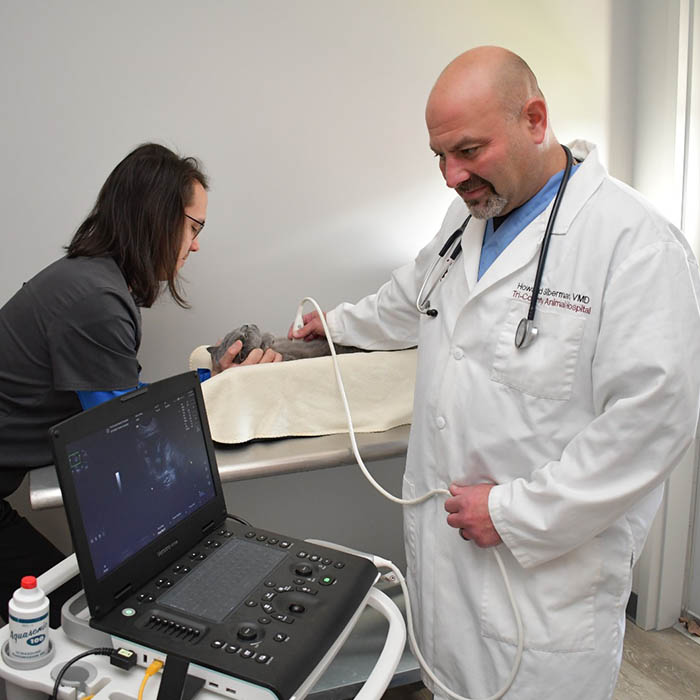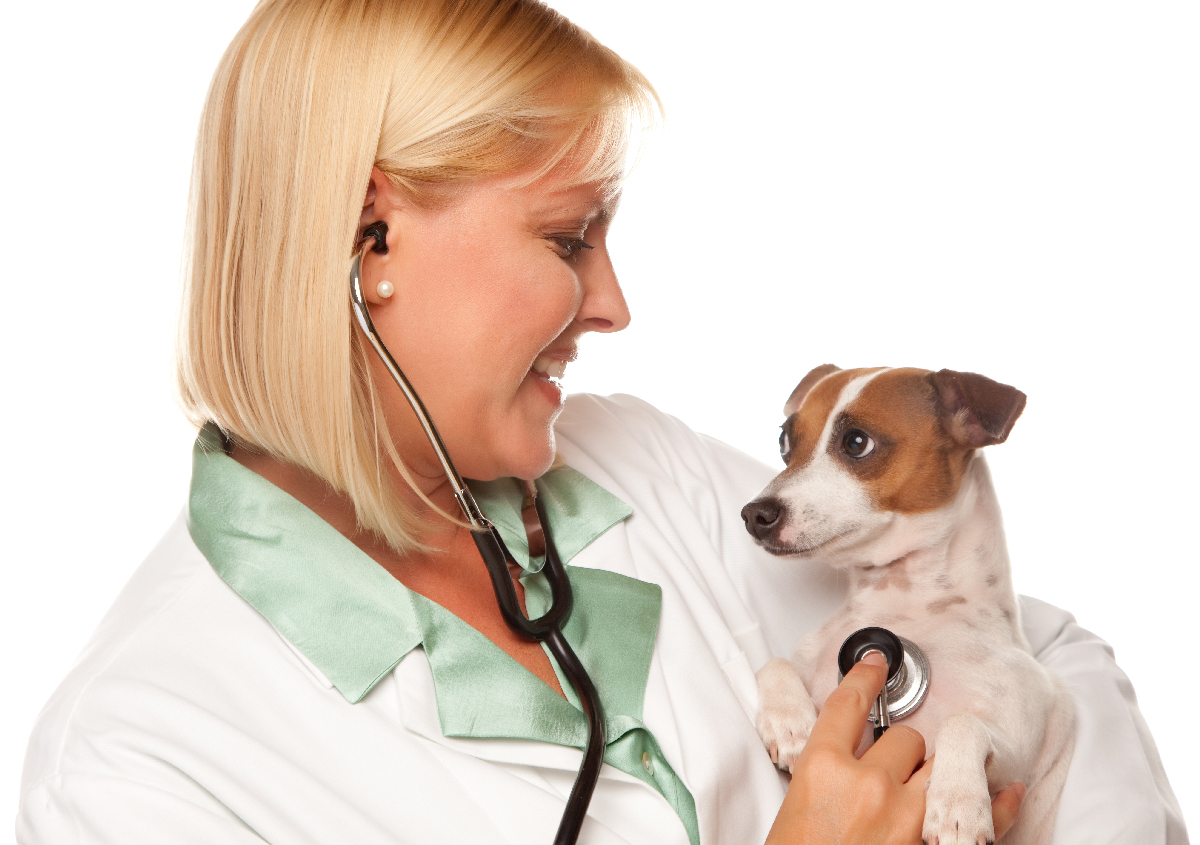How CT Scans For Animals Help Vets Detect Internal Issues Early}
Checking Out the Crucial Services Supplied by a Veterinary Cardiologist: Comprehending Ultrasound and CT Scan Techniques
Vet cardiologists play a crucial role in the health of pet dogs by detecting and treating various heart disease. They make use of sophisticated imaging methods, such as heart ultrasound and CT scans, to offer accurate analyses. Each technique has its distinct benefits and applications. Comprehending these techniques is important for pet proprietors seeking the very best look after their companions. What variables should animal owners consider when picking between these analysis tools?

The Role of Veterinary Cardiologists in Animal Health Care
Veterinary cardiologists play a crucial function in the health care of animals, focusing particularly on identifying and treating heart-related conditions. They possess specialized training that allows them to interpret complex analysis examinations and determine different cardiovascular problems. These experts utilize advanced techniques, such as echocardiography and electrocardiography, to analyze heart feature and structure accurately.Veterinary cardiologists also develop tailored therapy strategies that may consist of drugs, way of life adjustments, and, sometimes, surgical interventions. Their proficiency includes enlightening pet dog proprietors regarding heart health and wellness, emphasizing the importance of normal examinations and early discovery of potential troubles. Cooperation with general veterinarians is essential, as it ensures extensive care for pet dogs with thought cardiac concerns. By using specialized services, vet cardiologists considerably improve the lifestyle for pets and provide satisfaction for their owners, enhancing the value of heart health in total animal health.
Common Cardiac Concerns in Animals
Common heart problems in animals can considerably impact their health and wellness and high quality of life. Heart whisperings, various sorts of cardiomyopathy, and genetic heart problems are among the most prevalent problems that vets run into. Board Certified Veterinary Cardiologist. Understanding these issues is necessary for animal owners to ensure prompt diagnosis and suitable treatment
Heart Murmurs in Pets
Although heart murmurs can be a source of problem for pet proprietors, they are not constantly a measure of severe wellness concerns. A heart whispering is an abnormal audio generated by stormy blood circulation within the heart. In family pets, these murmurs can be brought on by different factors, consisting of hereditary heart issues, valve problems, or also tension throughout exams. Lots of pet dogs with heart murmurs lead typical lives without significant health and wellness effects. To figure out the underlying cause, vet cardiologists typically utilize diagnostic techniques such as echocardiograms and Doppler ultrasounds. Early detection and analysis are crucial, as they might help manage any type of possible heart issues successfully. Pet proprietors are motivated to consult their veterinarian for a thorough evaluation if a heart whispering is found.
Cardiomyopathy Kind Explained
Cardiomyopathy encompasses a team of illness impacting the heart muscle, bring about compromised heart feature in pets. The most common types include expanded cardiomyopathy (DCM), hypertrophic cardiomyopathy (HCM), and limiting cardiomyopathy (RCM) DCM mostly influences pets, causing the heart to deteriorate and enlarge, which decreases its capability to pump blood efficiently. On the other hand, HCM is a lot more prevalent in cats, defined by the enlarging of the heart walls, often causing obstructed blood circulation. RCM, though less common, happens when the heart muscular tissue comes to be inflexible, restricting its capability to loaded with blood. Each type provides one-of-a-kind difficulties in diagnosis and therapy, demanding specialized vet cardiological evaluation to assure peak administration and care for impacted pet dogs.
Congenital Heart Flaws
Hereditary heart issues represent a significant group of heart concerns in pet dogs, distinct from obtained conditions such as cardiomyopathy - CT Scans For Animals. These defects are structural irregularities existing at birth, influencing the heart's typical feature. Common kinds consist of patent ductus arteriosus, ventricular septal defects, and pulmonic constriction. Signs might differ commonly, ranging from moderate to extreme, and can consist of exercise intolerance, coughing, and trouble breathing. Early medical diagnosis through advanced imaging strategies like ultrasound is crucial for efficient monitoring. Vet cardiologists play a vital duty in determining these conditions and recommending ideal therapy choices, which might consist of clinical monitoring or medical treatment. Identifying congenital heart problems enables for much better end results and boosted high quality of life for affected family pets
Understanding Heart Ultrasound: How It Works
A significant variety of veterinary practices currently utilize heart ultrasound as a necessary analysis device for evaluating heart wellness in pets. This non-invasive technique uses high-frequency sound waves to create pictures of the heart's framework and feature. Throughout the treatment, a vet professional applies a gel to the pet's upper body and uses a transducer to release ultrasound waves. These waves jump off the heart and bordering frameworks, creating real-time images on a monitor.Veterinarians can examine different aspects of cardiac health, including chamber dimension, wall surface motion, and shutoff function. In addition, cardiac ultrasound enables the discovery of problems such as liquid buildup and genetic heart issues. This strategy is essential for diagnosing problems that might not show up through common radiographs. By supplying in-depth details about the heart's makeup and efficiency, heart ultrasound help click to read more in creating efficient therapy strategies for pets dealing with heart problem.
The Value of CT Scans in Detecting Heart Issues
How do CT scans boost the diagnosis of heart disease in veterinary medication? CT scans offer detailed cross-sectional photos of the heart and surrounding structures, allowing veterinarians to picture complicated anatomical relationships. This imaging technique is especially useful in determining congenital heart issues, cardiac growths, and problems in capillary. By using sophisticated imaging formulas, CT scans can examine heart chamber sizes and feature, supplying a detailed view that might be hard to achieve with conventional methods.Additionally, CT angiography can envision blood flow and determine locations of constriction or obstruction, which is crucial for preparing prospective treatments. The speed and precision of CT scans likewise facilitate quick diagnoses, crucial in emergency situation situations. Eventually, the consolidation of CT checks into vet cardiology greatly improves the accuracy of medical diagnoses, making it possible for targeted therapy strategies and improving client results for animals struggling with heart conditions.
Comparing Ultrasound and CT Scan Techniques
While both ultrasound and CT scans are very useful devices in vet cardiology, they supply distinct advantages and limitations that influence their use in diagnosing heart disease. Ultrasound, or echocardiography, provides real-time imaging of the heart's structure and feature, allowing veterinarians to assess heart chambers, shutoffs, and blood circulation. It is specifically reliable for reviewing problems like coronary infarction and cardiomyopathy. Nonetheless, ultrasound may be limited in picturing specific anatomical structures due to patient size or obesity.In comparison, CT checks deal thorough cross-sectional pictures of the heart and bordering tissues, making them suitable special info for determining structural abnormalities, lumps, or vascular concerns. CT scans provide complete insights, they call for sedation and might involve radiation direct exposure. Eventually, the choice in between ultrasound and CT scans depends upon the particular professional situation, the client's problem, and the info required for an accurate medical diagnosis.
Treatment Alternatives Available Via Veterinary Cardiology
Vet cardiology provides a series of treatment choices tailored to attend to numerous heart conditions in pets. Treatment strategies frequently start with lifestyle adjustments, consisting of diet adjustments and exercise modifications, intended at improving general heart wellness. Medications play a crucial duty, with cardiologists prescribing medications such as diuretics, beta-blockers, and ACE preventions to enhance and manage symptoms cardiac function.In much more extreme instances, interventional procedures, such as balloon valvuloplasty or stent placement, might be essential to reduce obstructions or boost blood circulation. For sure hereditary heart defects, surgical options might be discovered to correct structural concerns. Additionally, recurring monitoring and follow-up care are important elements of a complete treatment plan, enabling prompt modifications based on the pet dog's reaction to therapy. Generally, vet cardiology concentrates on providing effective, individualized like enhance the wellness and well-being of pet individuals with heart problems.
Just how to Prepare Your Pet Dog for a Heart Analysis
Preparing an animal for a heart examination is necessary to ensure precise results and a smooth process. Owners need to initially arrange the consultation with the veterinary cardiologist and go over any particular demands or worries. It is suggested to keep food for at least 12 hours before the evaluation, as this aids boost imaging quality during treatments like ultrasound or CT scans.Additionally, maintaining a tranquil environment on the day of the consultation can help in reducing the family pet's anxiety. It is advantageous to bring along any appropriate clinical documents, including previous examinations and medicines (CT Scans For Dogs). Owners need to likewise make sure that their pet dog fits and leashed throughout transport to the facility. Lastly, familiarizing themselves with the analysis process can help and relieve concerns in asking educated concerns throughout the assessment. By adhering to these steps, proprietors can add significantly to the performance of the cardiac examination
Frequently Asked Concerns
Just how Long Does a Cardiac Ultrasound or CT Check Take?
The period of a cardiac ultrasound normally varies from 30 to 60 minutes, while a CT scan might take about 15 to half an hour. Aspects such as the patient's condition can influence these time quotes.

Exist Any Type Of Threats Connected With These Analysis Treatments?

Can I Stick With My Family Pet During the Procedure?
The vet facility's policy typically determines whether family pet owners can remain throughout procedures. While some clinics urge owner presence for convenience, others may call for splitting up to guarantee safety and security and suitable conditions for analysis imaging.
Just how much Do These Diagnostic Examinations Usually Cost?
The prices of diagnostic examinations, such as ultrasound and CT scans, typically vary based upon location and center. Generally, rates range from a couple of hundred to over a thousand dollars, showing the complexity and modern technology involved.
What Is the Healing Refine After a Cardiac Examination?
The recovery procedure after a heart assessment entails keeping an eye on the pet dog for any instant responses, making sure convenience, and limiting physical task. Vets usually give post-evaluation directions to assist pet owners throughout this crucial recovery period. Heart whisperings, numerous types of cardiomyopathy, and hereditary heart issues are among the most prevalent problems that vets experience. A heart murmur is an uncommon sound produced by unstable blood circulation within the heart. Cardiomyopathy incorporates a group of diseases impacting the heart muscle mass, leading to endangered cardiac function in animals. Hereditary heart flaws visite site stand for a substantial category of cardiac issues in animals, distinctive from acquired problems such as cardiomyopathy. Ultrasound, or echocardiography, supplies real-time imaging of the heart's structure and function, enabling vets to examine heart chambers, shutoffs, and blood flow.